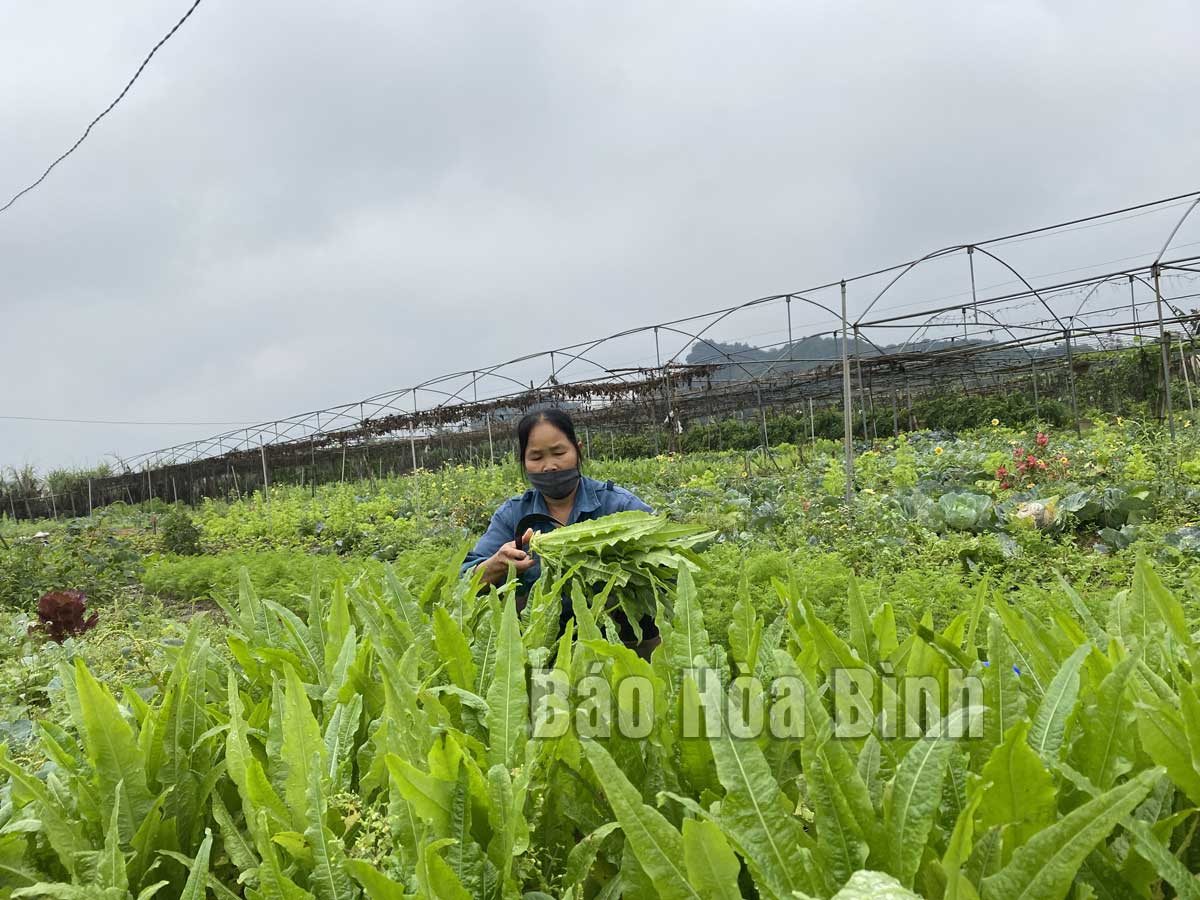


The district is moving towards building a comprehensively-developed agricultural industry boasting modernity and high levels of productivity, quality, and competitiveness.

Members of the Dong Suong organic vegetable production cooperative in Lien Son commune, Luong Son district.
According to figures from the district’s Agriculture and Rural Development Office, the district has an organic vegetable area of 22.3 hectares, of which 12.323 hectares are certified organic with output of about 80-100 tons a year. Sales prices under contracts is about 20,000 VND per kg.
The district’s My Tan agricultural cooperative in Cao Duong commune also has about 13.4 hectares of fruit trees certified organic.
Along with organic production, cooperatives and cooperative groups have strictly followed VietGAP standards to guarantee food safety.
Some 119.4 hectares of citrus trees, bananas, longans, and guava, as well as livestock products from chickens, bees, and goats have also been certified under VietGAP standards.
Organic agricultural products in Luong Son district with VietGAP certification mainly head to clean food chain stores and supermarkets in Hanoi.
Luong Son was hit hard by COVID-19 last year, but most of its cooperatives and cooperative groups still posted stable incomes and fulfilled their contracts.
The average monthly income of households in cooperatives ranges from 4 to 5 million VND per person.
Organic agricultural production not only creates a local brand name linked with markets of potential, but also contributes to protecting the environment, improving natural landscapes, and attracting investors.
To continue to boost the results achieved in organic agricultural development, Luong Son district plans to carry out organic production at 22 hectares in several communes, including Cao Son (8 ha), Nhuan Trach (3 ha), Cu Yen (4.5 ha), and Lien Son (6.5 ha). At the same time, safe vegetables grown under VietGAP standards will total 15.5 ha in the communes of Cu Yen (3 ha), Tan Vinh (4.5 ha), Lien Son (6 ha), and Thanh Son (2 ha).
Luong Son district has promoted its communications activities to raise awareness about organic agricultural production and clean and safe agriculture, and passed on information on production processes, promotions, and introducing agricultural products.
It also plans to hold training classes for technical staff and farmers on management and production models and high-tech application models, among others.
Head of the District Agriculture and Rural Development Office Nguyen Thi Minh emphasised that in order to sustainably develop organic agriculture and high-tech agriculture, Luong Son district will mobilise all necessary resources to support cooperatives and households in building infrastructure and using water-efficient misting irrigation, drip irrigation, plastic mulch, and soil treatment.
The soil will be treated with microbiological treatment applications before planting, and use biological products to treat pests and disease, as well as liquefied organic fertiliser and microbial organic fertiliser.
Minh added that agricultural waste can be used to both protect the environment and save on fertiliser costs, and improve the physical and chemical properties of the soil in order to produce safe, environmentally-friendly, sustainable products of high economic value.
Information technology will also be applied to create a QR Code traceability account and develop packaging and traceability labels for organic, safe agricultural products, she said./.